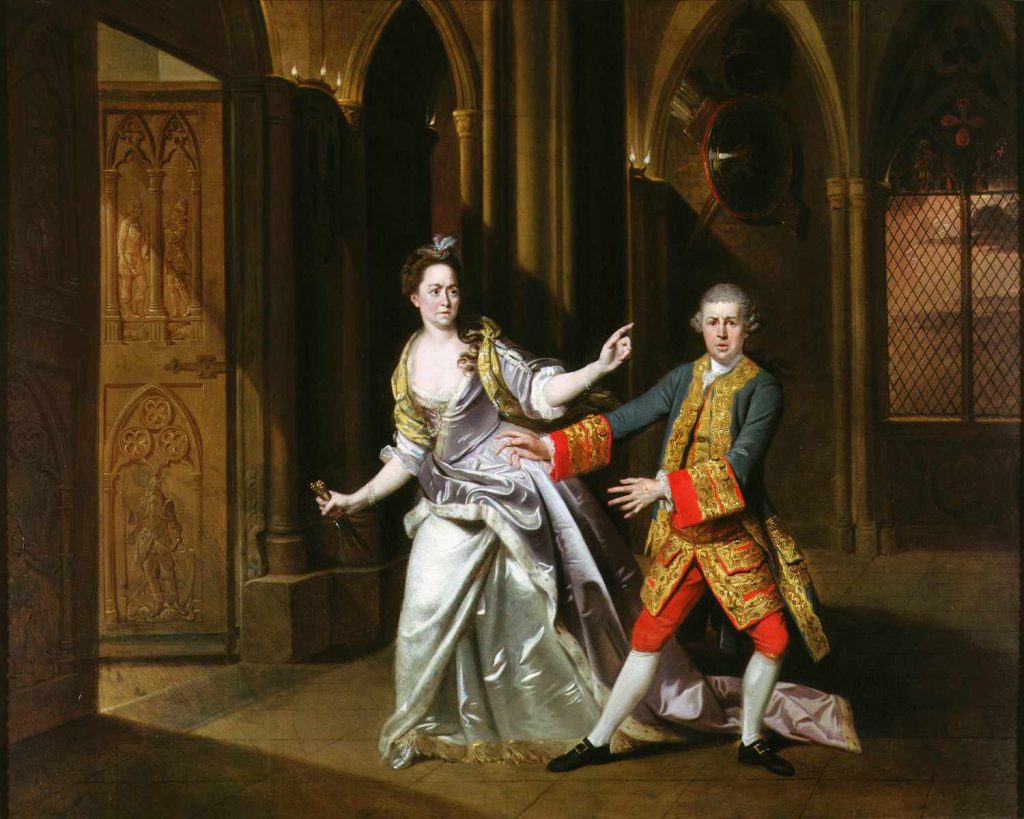Lady Macbeth, a central figure in William Shakespeare’s tragic play Macbeth, is a character study in ambition, manipulation, and the descent into insanity. From the moment she learns of the witches’ prophecy predicting Macbeth’s ascent to the throne, she becomes the catalyst behind her husband’s bloody path to power. However, her relentless drive and manipulation eventually lead to her undoing as guilt and madness consume her.
But how did Lady Macbeth die? Her death is not explicitly illustrated in the play, leaving it shrouded in mystery and open to interpretation. This article seeks to unravel the enigma surrounding the demise of this complex and intriguing character.
The Unseen Death
In Shakespeare’s original text, Lady Macbeth’s death isn’t depicted on stage. Instead, it is reported off-stage by a minor character, Seyton, in Act 5 Scene 5. Upon hearing a cry, Macbeth sends Seyton to investigate, who returns with the somber news: “The queen, my lord, is dead.”
This brief announcement, devoid of detail, leaves the circumstances of Lady Macbeth’s death open to interpretation. Shakespeare intentionally leaves out these details, allowing the audience to draw their own conclusions.
Suicide: The Implied Cause
While the specific cause of Lady Macbeth’s death is not explicitly stated, there is a strong suggestion she took her own life. This is inferred from Malcolm’s words in Act 5 Scene 8, in which he refers to Lady Macbeth as the ‘fiend-like queen’ who, it’s believed, used her own ‘violent hands’ to end her life.
The taking of one’s own life, or suicide, was considered a grave sin during Shakespeare’s time, and was even punishable by law. The societal stigma associated with such an act perhaps explains why her death is reported so briefly and devoid of sympathy.
The Guilt-Induced Madness
The guilt of her actions, particularly her role in King Duncan’s murder and the ensuing bloodbath, becomes a burden too heavy for Lady Macbeth to bear. This guilt, along with the paranoia of being found out, leads to sleepless nights and haunting visions, eventually causing her to lose her sanity.
Her sleepwalking scenes, where she attempts to wash imaginary blood stains off her hands, are a stark representation of her guilt and deteriorating mental state. These scenes offer a poignant depiction of a once-powerful woman, now reduced to a shadow of her former self, haunted by her deeds and tormented by her guilt.
Macbeth’s Stoic Response
Macbeth’s response to his wife’s death is notably stoic and devoid of emotion. He does not inquire about the specifics of her death, nor does he show any visible signs of grief. Instead, he comments on the timing of her death, stating that she should have died at a later time.
His response can be seen as a criticism of Lady Macbeth’s decision to control the timing of her own death, an act that mirrors her attempts to control her husband’s destiny. This stoic response is perhaps symbolic of Macbeth’s own descent into desolation and numbness, as he too comes to terms with the consequences of their ambition.
The Aftermath
Despite her death being reported off-stage and with minimal detail, Lady Macbeth’s demise leaves a significant impact. Her downfall serves as a warning of the corrupting influence of unchecked ambition and the devastating toll it can take on the individual and those around them.
Her death, while tragic, is also seen as a form of poetic justice for her role in the series of bloody and treacherous events that unfold over the course of the play. Her demise can be viewed as a direct consequence of the choices she made and the actions she undertook in her pursuit of power.
Conclusion
The question of how did Lady Macbeth die may not have a definitive answer, but the implications surrounding her death are profound. Her decline from a powerful and ambitious woman to a guilt-ridden and mad queen is a tragic story of ambition gone awry, offering a stark warning of the dangers of unchecked ambition and the devastating consequences it can bring.
Her death, shrouded in mystery and open to interpretation, leaves an indelible impression, making Lady Macbeth one of Shakespeare’s most memorable and tragically flawed characters.

